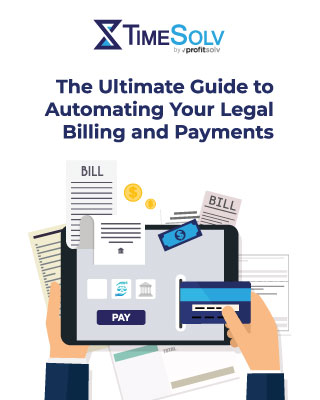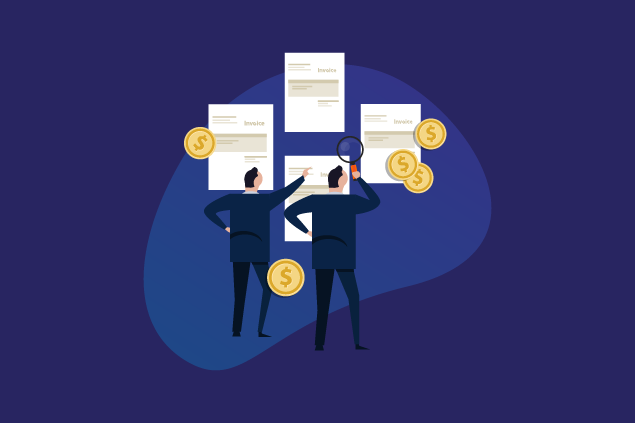Profitability is the lifeblood of sustained success for all law firms, but it’s especially critical when a firm begins to scale and needs to support a larger roster of attorneys, partners, and staff and continue to prosper. In today’s competitive legal market, optimizing financial performance is crucial to ensure firm scalability and stability. Specialized time tracking and billing software can play a pivotal role in helping these firms accurately track time, monitor their bottom line, enhance efficiency, and, ultimately, meet their business goals.
Strategies for greater profitability
Let’s explore essential strategies that mid-size law firms can adopt to maximize profitability and secure a prosperous future.
1. Analyze your current financial performance
Before implementing any changes in business strategy to improve profitability, small and mid-size law firms need to have a clear understanding of their current financial performance. Firms rely on accurate real-time data snapshots to track progress. They need to know how their attorneys and legal staff are performing now, how much time they’re spending on each project, and how much they’re billing at a glance. They also need to have a clear picture of when it’s time to dig further into those trends and either troubleshoot solutions or capitalize on opportunities. A customizable dashboard and robust reporting tools can bring these powerful insights to members of your firm and keep those key data points front and center. With a high-level view of real-time numbers—including revenue streams, billable hours, expenses, collections, and more—law firms can make data-driven decisions to optimize their financial performance.
2. Optimize your pricing strategies
An effective pricing strategy is critical for mid-size law firms to remain competitive in the market while ensuring they are adequately compensated for their services. Consider implementing flexible billing options, such as hourly rates, fixed fees, and contingency billing. These pricing models allow firms to tailor invoices to clients according to their needs and the complexity of their cases. By accurately tracking billable hours and expenses, firms can ensure transparent invoicing and avoid undercharging for their services. Additionally, expense tracking software ensures you can organize, access, and categorize every business expense immediately since you can input it from anywhere, anytime—whether online or offline. Your firm shouldn’t lose money due to losing a receipt that you should have applied as an expense to a client. Input time and expenses as they happen with a cloud-based solution that guarantees that your billing is fair to your clients—and the work you put into their matters.
3. Increase client retention and referrals
Client retention and referrals are powerful drivers of profitability and growth for most businesses, especially law firms. You retain satisfied clients because they are more likely to return for future legal matters, and satisfied clients are likely to recommend the firm to their network. Elevate your firm’s client communication and collaboration through features like a secure client portal that lets clients view invoices, payment histories, trust balances, and updates on matters in progress at any time—without crowding your inbox. A portal allows you to focus on your practice and clients to access the information they need independently and transparently. In turn, you can take advantage of a comprehensive client database to gain insights into your previous projects, which gives you the opportunity to proactively provide personalized services and strengthen your relationship with existing clients.
4. Streamlining operations and workflow
Inefficient processes and workflows can lead to wasted time, increased costs, and decreased profitability. But how exactly do you streamline them? While there are many strategies law firms can implement to right-size their operations and establish efficient workflows, one important tool to leverage is automating administrative tasks. Valuable opportunities for automation include:
- Time and expense tracking
- Document assembly and management
- Billing and payment processes
- Reporting
By automating administrative tasks and standardizing workflows without getting cluttered up by numerous features your firm will never touch, attorneys and staff can focus on delivering high-quality legal services, ultimately leading to improved efficiency and productivity.
5. Effective time management
Time is a finite and valuable resource. That applies to professionals in the area of law as much as any other industry.
Accurate time tracking is essential for mid-size law firms to measure productivity, allocate resources effectively, and ensure timely billing for services rendered—which clients have come to expect.
User-friendly time tracking tools allow attorneys to easily capture billable hours, whether in the office or on the go, so they never lose another minute that should have been billed to a client. This comprehensive time-tracking capability helps firms identify areas of improvement, optimize time allocation, and eliminate non-billable hours, all of which contribute to increased profitability.
6. Manage costs and overhead
Controlling costs, managing overhead, and eliminating unnecessary expenses are crucial components of maximizing profitability for mid-size law firms.
Monitor expenses with a software solution designed to track costs related to cases, clients, or projects so your firm can evaluate if costs are encroaching on your profit margins. With a clear picture of expenses, firms can identify cost-saving opportunities and make informed decisions about resource allocation.
Consider using a cloud-based platform that eliminates the need for costly IT infrastructure, reducing hardware and maintenance expenses and setting you up for savings.
7. Monitor your KPIs
To stay on track toward their profitability goals, mid-size law firms must continually monitor and analyze key performance indicators (KPIs).
Advanced reporting and analytics tools provide firms valuable insights into their financial health, performance, and business efficiency. By continuously evaluating KPIs, firms can proactively address potential issues before they grow into problems, identify growth opportunities in time to take advantage of them, and make data-driven decisions to improve profitability.
Accessing the data you need when you need it, and in the format that works best for you, means that your firm can see the whole picture clearly. For example, TimeSolv offers 31 different reports including billable hours, expense tracking, and accounts receivable, in ten formats, giving you the insights you need on demand.
TimeSolv helps you get paid for all your work
Small and mid-sized law firms have significant opportunities to enhance their profitability by leveraging TimeSolv’s time tracking and billing software.
From analyzing financial performance to optimizing pricing strategies, increasing client retention, and effectively managing time and costs, TimeSolv offers a suite of powerful tools that enable firms to achieve greater efficiency and profitability.
By adopting these strategies and embracing innovative technology like TimeSolv, mid-size law firms can set themselves on a path to sustainable growth and success in the dynamic legal landscape. Start now with a free trial that includes one-on-one training.















